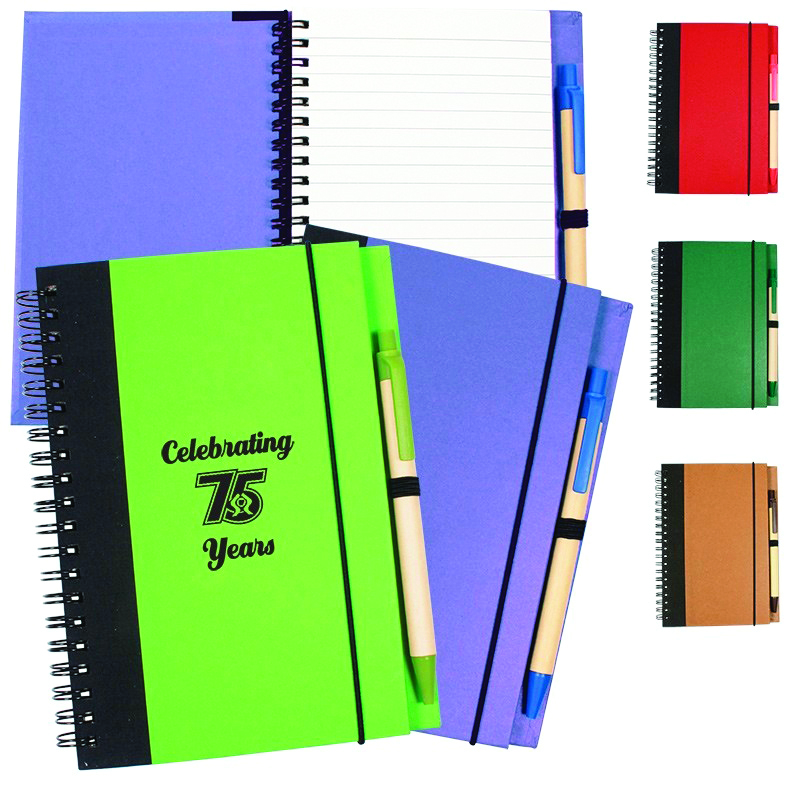
Everyone remembers his or her school days differently. Some focus on their days on a sports team, others remember their debate club success. Some remember the joys of math class, and others the misery of math class.
The point is, no two school experiences are the same. So, when you’re selling promotional products to clients in the education field, you can’t just pick out one-size-fits-all ideas.
We spoke with Keri O’Brien Soukup, partner at O’Brien Corporation, a St. Charles, Illinois-based distributor, about how to sell to clients in various areas of the education market.
Pick Something Usable
The first thing that you should consider is how will the product be used by the end-user? Is it meant for a one-time use or to be kept for a long time? For students, Soukup suggested giving something that helps with their day-to-day life. Think about what goes into life at an elementary, middle or high school. For universities, students’ daily routines are much different than those of high school students.
“When working with clients at the university level, I try to focus on professional items that the students can use regularly,” she said. “These can be notebooks with integrated post-its and calendar reminders, or a drinkware piece that includes a printed message inside on healthy eating and staying hydrated during finals week.”
For things that are more events-focused, such as a fundraiser, alumni event or orientation, distributors need to understand exactly what their clients want attendees to get out of it, and what message they want to convey. From there, they can make an informed decision on what products they can use to fill that need.
And, if you remember what some of your teachers might have told you about thinking outside of the box to find a solution, you might be well-positioned to provide a more memorable promotional experience for your customers.
“In my experience, I have found it best to not narrow down to the product selection until I understand the event and type of attendees [the client] is interested in pursuing,” Soukup said. “This can vary greatly between different levels of education and types of schools. So, while not actually item-specific, my recommendation would be that you don’t forget about all the events outside of the obvious. Recruitment, alumni networking events, board gifts, enrollment giveaways and open house events often bring opportunities much larger than the traditional pens-and-bag-type giveaways.”
Don’t Take a Vacation
OK, that title is a little misleading. You’re allowed to take a vacation. You work hard! But, what we mean is, just because the school isn’t open during the summer doesn’t meant you shouldn’t still be pursuing its business.
“Summer is never a time of rest with education buyers,” Soukup said. “They are always working, and summer is especially busy, as they gear up for the next school year.”
This is the time of year that teachers and administrators are planning new events and lesson plans. For clients at the university level, there could be a big new rebrand to totally reshape the school’s identity, or a new marketing program designed to recruit students. With those changes come apparel, drinkware, banners and a host of other promotional products needs.
Competitive Admission
Just like the application process to prestigious schools can be competitive, so too can the process of bidding for a school’s business—especially when you’re dealing with schools with larger regional (or national) presences or big reputations.
“Breaking into the industry is the first hurdle,” Soukup said. “Once you have the contact, pricing and competition can still be a big challenge in the education market. There may be numerous companies bidding each project. Therefore, you need to be prepared to offer highly competitive pricing through supplier alliances, while still setting yourself apart creatively.”
It’s like filling out college applications—grades are one thing, and those speak for themselves, but most colleges require an essay where prospective students can give more detail into who they are, what else they’ve done over the last few years, and what makes them stand out from the thousands of other hopeful students.
“You also need to be ready to rush,” Soukup added. “We regularly receive requests a week or less before an event, and we always strive to do anything possible to get their rush products in time. We trust that going the extra mile when they are in a bind will keep them coming back with the standard lead-time opportunities.”
Stay organized
Think back once again to your school days. Chances are you remember a handful of students with totally disorganized backpacks, desks and notebooks. (It might’ve even been you!) Teachers always hounded those students to stay organized, and they weren’t just saying that for their health. It’s probably the most useful piece of advice we learned in school, and it carries over into the professional world, especially in selling promotional products.
In addition to staying on top of your own work, Soukup suggested staying on top of your clients and checking in periodically, like a parent-teacher conference of sorts.
“There is so much chaos going on for educational buyers, between events and the day-to-day responsibilities,” she said. “My clients always appreciate a monthly check-in to show them the latest and greatest items at a few different price points. Sometimes they won’t have time to respond, but months later you may find yourself getting an order just because you regularly offer them unique ideas and high levels of service. Don’t give up. Breaking into this industry isn’t a simple feat, but it will pay off in the long run.”



